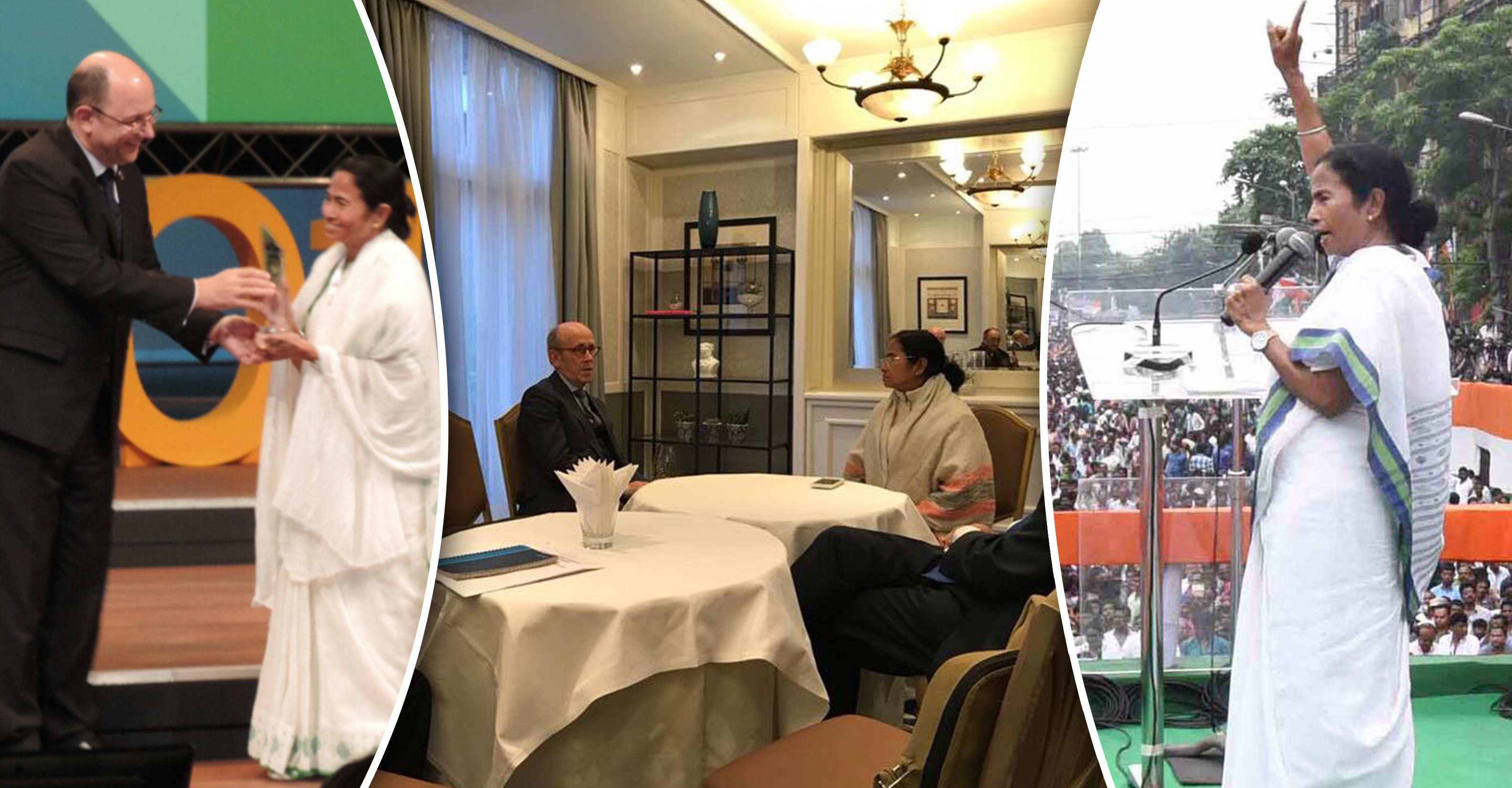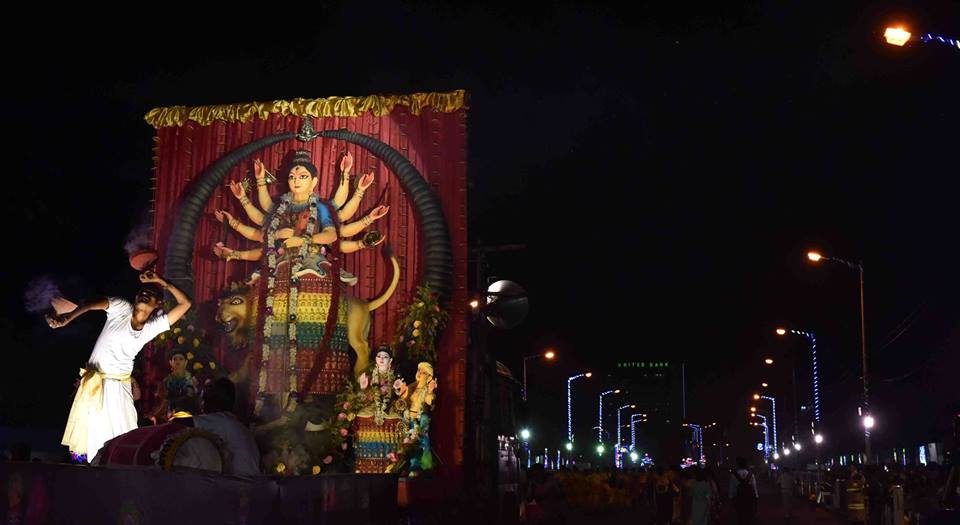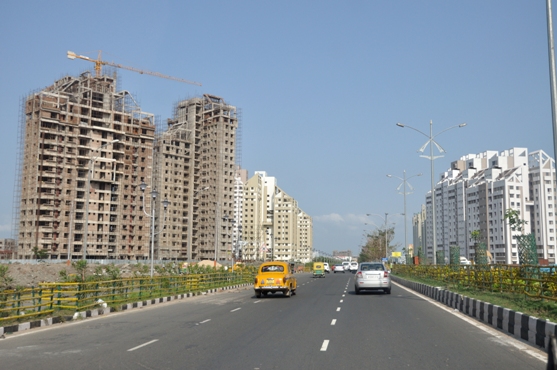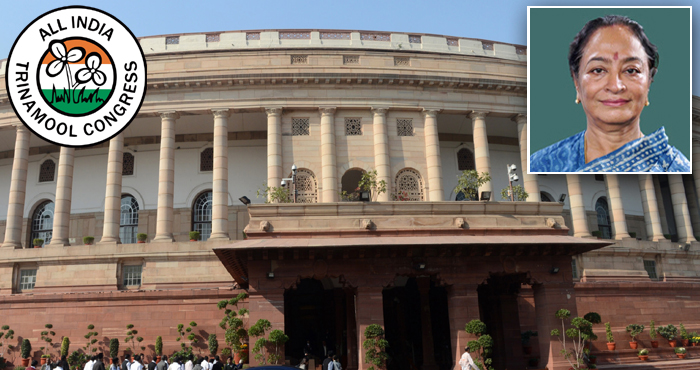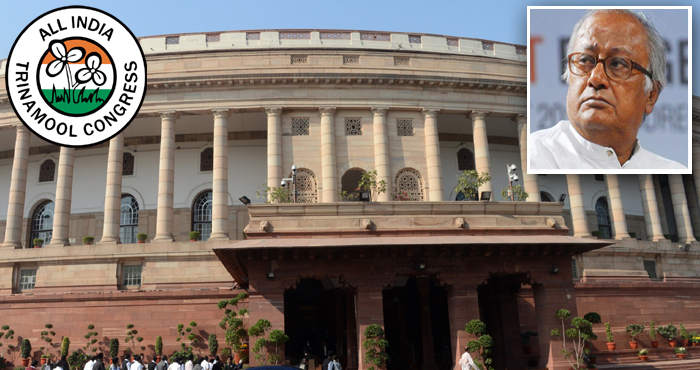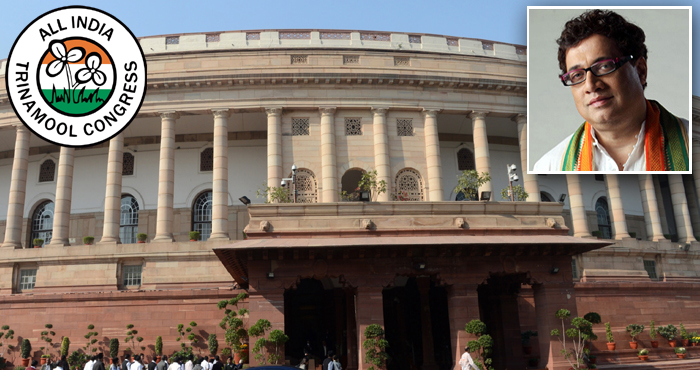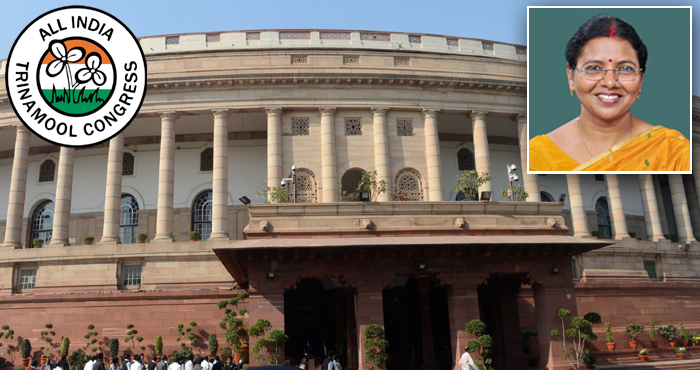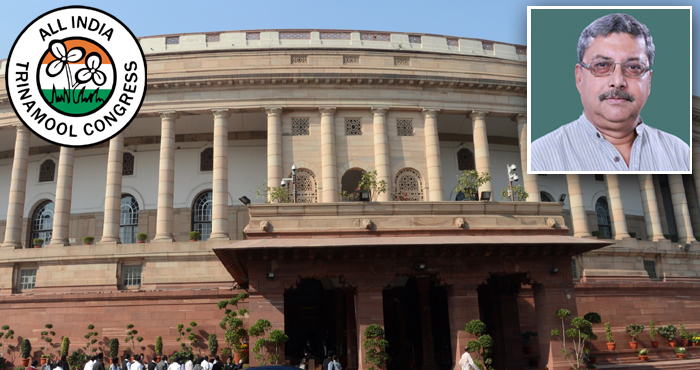The sun of 2017 is setting, and 2018 is on the horizon. At this juncture, let us take a look at some of the crucial events that have held up for everyone.
It is an undeniable fact that under the Chief Minister Mamata Banerjee-led Trinamool Congress Government, Bengal has turned a crucial bend on the road to development, and now there is no looking back.
Here are 17 events in 2017 that we will all remember:
1. Kanyashree wins UN award
On June 23, 2017, the Bengal Government was awarded the United Nations Public Service Award for winning the first prize among projects in South Asia for the Kanyashree Scheme.
2. FIFA Under-17 World Cup in Bengal
The Bengal Government earned worldwide praise, including from world football’s governing body, FIFA for successfully organising the Under-17 World Cup. Two of the most crucial matches, a semi-final and he final, were both held at the Vivekananda Yuba Bharati Krirangan in Kolkata.
3. Victory in by-elections
All the four by-elections held in 2017 – for the seats of Cooch Behar, Dakshin Kanthi, Tamluk and Sabang – were won by huge margins by the Trinamool Congress.
4. Bengal gets new districts
The State Government created four new districts for administrative convenience, bringing the total number to 23. Kalimpong was created out of Darjeeling and Jhargram was created out of Paschim Medinipur while Bardhaman was broken up into Purba Bardhaman and Paschim Bardhaman.
5. Trinamool blooms in the Hills
For the first time ever, Trinamool Congress has formed a local government in the Hills region. Mirik Municipality is now with Trinamool Congress.
6. Mega health reform
Setting a benchmark for other states as well as the Union Government, the West Bengal Clinical Establishments (Registration, Regulation and Transparency) Bill was passed by the State Assembly, brining in a raft of new measures for strengthening the health administration. Among other advantages, now, even for treatment in private hospitals, patients would be able to know the details about the cost and other aspects.
7. Balm on demonetisation troubles
The Bengal Government brought in the Samarthan Scheme in March 2017. It has ensured that those who have had to return to the state, having lost their jobs due to the impact of demonetisation, receive a one-time grant of Rs 50,000 to give them stability as well as enable them to start a new business. Along with this, they are also able to enrol in government schemes which would help them to ensure a steady income.
8. ‘Experience Bengal’ become viral
The State Tourism Department’s promotional video, ‘Experience Bengal’ has picked up a lot of praise, both in terms of the visuals and the content.
9. International business summit hits the right notes
The third Bengal Global Business Summit in January became a forum for industry interactions of the highest order. Representatives from about 30 countries attended the summit, and of course those from across India. Memoranda of understanding (MoU) worth Rs 2.34 lakh was signed at the summit.
10. Rosogolla wins it for Bengal
After a long fight, Rosogolla has been officially recognised, through the granting of a geographical information (GI) tag, as belonging to Bengal.
11. Sitalpati and gobindobhog get international recognition
The well-known aromatic gobindobhog variety of rice has earned a GI tag, giving it a locational uniqueness, and thus, a huge marketability. Sitalpati earned a similar recognition from UNESCO when it was recognised as an ‘intangible cultural heritage’.
12. Bengal leads in MSME
Over the last five years, among the states, entrepreneurs of Bengal, as a whole, have received the highest amount of loans, amounting to 15 billion US dollars. Additionally, in terms of both the number of micro, small and medium (MSME) enterprises and the number of people employed in those, Bengal stands second in the country. Almost 37 lakh MSME enterprises employ about 86 lakh people.
13. Bengal is leading in the construction of toilets
Bengal is the leading state in India in the construction of toilets. The State Government’s Mission Nirmal Bangla is ensuring that Bengal wins the race in terms of a sustainable open-defecation free (ODF) culture. UNESCO has specially recognised the state for this. Not just construction, the government is ensuring through various local campaigns that using proper toilets becomes a normal habit.
14. Stress on infrastructural development
The Bengal Government has decided to spend Rs 12,000 crore under the non-Plan head, with special stress on building infrastructure. Among the infrastructural projects completed is building 18,000 km of roads.
15. Chief Minister’s England and Scotland trip
This year, Chief Minister Mamata Banerjee undertook highly successful visits to England and Scotland, drawing a lot of interest from industrialists and entrepreneurs. At the various summits she attended, Mamata Banerjee held up the huge opportunities and every type of help from the government that investors will find in Bengal.
16. Horasis Asia Summit in Kolkata
The prestigious Horasis Asia summit was held in Kolkata in November, which was the first time that it was held in India. Business leaders (CEOs, promoters, founders, etc.) from 65 countries, numbering 350, attended the summit. The Chief Minister addressed the summit too, inviting investment in all sectors in Bengal.
17. Infosys comes to Bengal
That the industrial climate of Bengal is changing for the better became evident when the international IT giant, Infosys decided to invest Rs 100 crore to set up a campus in Rajarhat, which will generate 1,000 jobs.
ফিরে দেখা ২০১৭
২০১৭র সূর্য আজ অস্তাচলে। নবদিগন্তে উদিত হবে ২০১৮র নতুন ভোর। বিগত বছরের কিছু অবিস্মরণীয় ঘটনাই হয়ে উঠুক আগামীর পথ চলার পাথেয়। কেমন কাটল এই বছর? ফিরে দেখা ২০১৭।
১. কন্যাশ্রীর বিশ্বজয়
রাষ্ট্রপুঞ্জে জনপরিষেবা দিবস উপলক্ষে এক অনুষ্ঠানে বাংলার প্রকল্প ‘কন্যাশ্রী’ প্রথম পুরস্কার পায়। ৬৩টি দেশের ৫৫২ প্রকল্পকে হারিয়ে সেরার শিরোপা পায় কন্যাশ্রী।
২. বিশ্ববাংলায় বিশ্বকাপ
এই প্রথম বার কলকাতায় আয়োজিত হয় অনূর্ধ্ব ১৭ বিশ্বকাপ ফুটবল। রাজ্য সরকারের সুষ্ঠু ব্যবস্থাপনায় মুগ্ধ হয় ফিফা কর্তৃপক্ষ। সবচেয়ে বেশি সংখ্যক দর্শকের উপস্থিতির জন্য প্রসংশিত হয় কলকাতা।
৩. উপনির্বাচনে তৃণমূলের জয়জয়কার
২০১৭ সালের ৪টি উপনির্বাচনে (কোচবিহার, দক্ষিণ কাঁথি, তমলুক ও সবং) বিপুল ভোটে জয়লাভ করে তৃণমূল কংগ্রেস।
৪. বাংলা পেল নতুন জেলা
নতুন তিনটি জেলা গঠিত হল বাংলায়। দার্জিলিং জেলা ভেঙে গড়া হয় কালিম্পঙ, বর্ধমান ভেঙে তৈরী হয় পূর্ব ও পশ্চিম বর্ধমান, এবং পশ্চিম মেদিনীপুর ভেঙে তৈরী হয় ঝাড়গ্রাম জেলা।
৫. পাহাড়ে ফুটল ঘাসফুল
রাজনৈতিক ইতিহাসে প্রথমবার পাহাড়ে (মিরিক পুরসভা) এককভাবে জয়লাভ করে পুরসভা গঠন করল তৃণমূল কংগ্রেস। প্রসঙ্গত, এর আগে কখনও পাহাড়ে সেখানকার আঞ্চলিক দল ছাড়া কেউ জয়লাভ করেনি।
৬. স্বাস্থ্যে বড় সংস্কার
স্বাস্থ্য পরিষেবায় স্বচ্ছতা আনতে, রোগীদের হয়রানি বন্ধ করতে ও চিকিৎসায় গাফিলতি রুখতে নতুন আইন আনল রাজ্য সরকার, গঠিত হল ১১ সদস্যের স্বাস্থ্য বিষয়ক কমিশন। রাজ্যের বেসরকারি হাসপাতাল ও নার্সিংহোমের বিলিং এর ওপর নজর রাখবে এই কমিশন। পাশাপাশি আইন লঙ্ঘন করলে হাসপাতালগুলির ওপর জরিমানা চাপাবে কমিশন।
৭. নোটবন্দির ক্ষতে প্রলেপ
২০১৭ সালের মার্চ মাসে পশ্চিমবঙ্গ সরকার ‘সমর্থন’ প্রকল্প চালু করেছে। যে সমস্ত শ্রমিক/কর্মচারী কেন্দ্রীয় সরকারের নোটবন্দির ফলে অন্য রাজ্য থেকে কাজ হারিয়ে ফিরে এসেছেন তাদের ৫০০০০ টাকার আর্থিক সাহায্য স্বরূপ এককালীন এই অনুদান দেওয়ার উদ্দেশ্যে এই প্রকল্প চালু করা হয়েছে।
৮. ভাইরাল ‘এক্সপিরিয়েন্স বেঙ্গল’
জানুয়ারী মাসে প্রকাশিত হয় পশ্চিমবঙ্গ পর্যটনের নতুন ভিডিও। সোশ্যাল মিডিয়া সাইটে বিপুল আলোড়ন ফেলে এই ভিডিও। প্রায় এক কোটি মানুষ এই ভিডিও দেখেছেন টুইটার, ফেসবুক, ইউটিউব সহ নানা সাইটে।
৯. বাণিজ্য সম্মেলনে লক্ষ্মী লাভ
তৃতীয় বিশ্ব বঙ্গ বাণিজ্য সম্মেলন অনুষ্ঠিত হয় জানুয়ারী মাসে। প্রায় ৩০টি দেশ থেকে প্রতিনিধিরা অংশগ্রহণ করেন এই সম্মেলনে। ২ লক্ষ ৩৪ হাজার কোটি টাকার লগ্নি প্রস্তাব পায় রাজ্য এই সম্মেলনে।
১০. রসগোল্লা বাংলারই
দীর্ঘ লড়াইয়ের পর শেষ হাসি হাসল বাংলাই। রসগোল্লার জিআই ট্যাগ জিতে নিল পশ্চিমবঙ্গ।
১১. শীতলপাটি ও গোবিন্দভোগের আন্তর্জাতিক স্বীকৃতি
আন্তর্জাতিক স্বীকৃতি পেল বাংলার হস্তশিল্প। রাজ্যের শীতলপাটি স্বীকৃতি পে ইউনেস্কো থেকে। পাশাপাশি, বাংলার সুগন্ধি গোবিন্দভোগ চাল পায় জিআই ট্যাগ।
১২. ক্ষুদ্র ও মাঝারি শিল্পে এগিয়ে বাংলা
ক্ষুদ্র ও মাঝারি শিল্পে গত পাঁচ বছরে ব্যাঙ্ক থেকে সব থেকে বেশি ঋণ পেয়েছে বাংলা, যার পরিমাণ হল প্রায় ১৫ বিলিয়ন ডলার। এর পাশাপাশি ক্ষুদ্র ও মাঝারি শিল্প প্রতিষ্ঠানের সংখ্যা অনুসারেও পশ্চিমবঙ্গ দেশে দ্বিতীয় স্থানে। বাংলায় প্রায় ৩৭ লক্ষ ক্ষুদ্র ও মাঝারি শিল্প প্রতিষ্ঠান আছে। প্রায় ৮৬ লক্ষ, ক্ষুদ্র ও মাঝারি শিল্পের সঙ্গে যুক্ত রয়েছেন। প্রসঙ্গত এই ক্ষেত্রেও বাংলা দেশে দ্বিতীয় স্থানাধিকারী।
১৩. শৌচাগার নির্মাণে শীর্ষে বাংলা
অন্যান্য রাজ্যের তুলনায় শৌচাগার নির্মাণে সবথেকে এগিয়ে বাংলা। এর জন্য ইউনিসেফ-এর প্রশংসা কুড়িয়েছে রাজ্য সরকার।
১৪. পরিকাঠামো উন্নয়নে জোর
পরিকাঠামো উন্নয়নে ১২ হাজার কোটি টাকা খরচ করবে রাজ্য সরকার। ২০১৭-১৮ অর্থবর্ষের বাজেটে পরিকাঠামো উন্নয়নের জন্য ধার্য আর্থিক লক্ষ্যমাত্রা ছাপিয়ে রাজ্য সরকার এই অতিরিক্ত ১২ হাজার কোটি টাকার সংস্থান করতে পেরেছে। এর পাশাপাশি রাজ্য জুড়ে ১৮০০০ কিলোমিটার নতুন গ্রামীণ রাস্তার সূচনা করা হয় মুখ্যমন্ত্রীর হাতে।
১৫. মুখ্যমন্ত্রীর ইংল্যান্ড ও স্কটল্যান্ড সফর
লন্ডনে ভগিনী নিবেদিতার জন্মের সার্ধশতবর্ষ উদ্যাপন উপলক্ষে নিবেদিতার বাড়িতে স্মৃতিফলক উন্মোচনে উপস্থিত ছিলেন মুখ্যমন্ত্রী। স্কটল্যান্ডের এডিনবরাতে শিল্প বৈঠক করেন মুখ্যমন্ত্রী। সেখান থেকে তিনি বাংলায় লগ্নির আহ্বান জানান। তুলে ধরেন রাজ্যের শিল্প সম্ভাবনার নানা দিক।
১৬. হোরাসিস বৈঠক কলকাতায়
শিল্পের বিষয়ে সুইজারল্যান্ডের আন্তর্জাতিক ‘থিঙ্ক ট্যাঙ্ক’, হোরাসিস তাদের প্রথম এশিয়া সম্মেলন করে কলকাতায়। এই সম্মেলনে ৬৫টি দেশের ৩৫০র বেশী কর্পোরেট লিডাররা যোগ দেন, যারা প্রতিষ্ঠাতা, মালিক, ম্যানেজিং ডিরেক্টর, প্রেসিডেন্টের মত মর্যাদাসম্পন্ন। এই সম্মেলনে বাংলার মুখ্যমন্ত্রী বাংলায় বিনিয়োগের জন্য আহ্বান জানান শিল্পপতি ও শিল্পপ্রতিনিধিদের।
১৭. বাংলায় আসছে ইনফোসিস
বাংলায় বিনিয়োগ করছে তথ্যপ্রযুক্তি সংস্থা ইনফোসিস। জমির মালিকানা এবং ব্যবহারের ক্ষেত্রে ছাড় পেতে চলেছে দেশের অন্যতম সেরা তথ্যপ্রযুক্তি সংস্থাটি। ইনফোসিসকে পুরোপুরি ৫০ একর জমির মালিকানা (ফ্রি-হোল্ড) দেবে সরকার।

